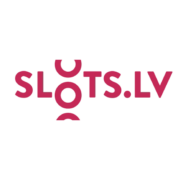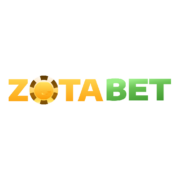As Bulgaria prepares for Eurozone accession in 2026, the conversation is shifting beyond currency alignment. Deputy Prime Minister Atanas Zafirov has spotlighted gambling regulation as a key area likely to experience significant change. His recent remarks link Eurozone entry to tighter control over unlicensed gambling via enhanced financial monitoring standards.
Speaking at the National Information Centre, Zafirov emphasized that deeper integration into EU financial systems could empower Bulgaria’s fight against illegal gambling. He pointed to improved cooperation with cross-border enforcement networks and better detection of illicit money flows often linked to unauthorized gambling sites.
This regulatory momentum builds on Bulgaria’s inclusion in the Schengen Area earlier this year. Unlike prior reforms focused on migration and borders, Eurozone accession places financial transparency at the forefront. Zafirov highlighted how these new obligations will reinforce the efforts of Bulgaria’s National Revenue Agency (NRA) in cracking down on non-compliant operators.
Cross-Border Cooperation and EU-Wide Regulatory Tools
Zafirov hinted at a broader enforcement strategy through stronger ties with EU institutions. Increased data-sharing and alignment with European oversight frameworks could help Bulgaria limit the reach of unlicensed operators. Former Interior Minister Rumen Petkov previously proposed a unified EU gambling registry — an idea gaining traction as regulatory threats become more cross-border in nature.
The concept is simple: track gambling entities across the EU to prevent them from relocating operations to avoid national oversight. Such a system could dramatically reduce the grey market’s influence and support fair competition among licensed platforms.
Domestic Reforms Signal Shift in Policy Tone
Bulgaria is already acting on several regulatory fronts. One major change came in April, when the NRA extended the self-exclusion period from 30 days to one year. The move aims to boost player protection, although some critics argue it could discourage individuals from opting into the program due to the longer commitment.
Advertising controls have also been tightened, with parties like the Bulgarian Socialist Party pushing illegal gambling as a legislative priority. Zafirov went further, suggesting gambling risks should be viewed through a national security lens — a significant narrative shift from the usual public health framing.
Stricter Controls May Impact Legal and Illegal Operators
Eurozone financial protocols introduce new challenges for both sides of the market. For illegal gambling platforms, it means a tougher environment where financial transactions and cross-border operations face greater scrutiny. These changes could severely restrict unregulated payment channels used by offshore providers.
Licensed online casinos, meanwhile, may face added reporting demands. KYC, anti-money laundering checks, and payment transparency are all likely to come under sharper review. Although these requirements increase operational complexity, they also create a more stable and trustworthy market for regulated operators.
Players and Platforms Must Adapt to a New Regulatory Climate
Players may find it harder to access unlicensed sites, pushing more activity toward approved platforms. But to retain and grow user bases, licensed casinos must prioritize ease of use, fair play, and transparency. Operators who adapt quickly to the new standards will be better positioned in the shifting landscape.
Ultimately, Bulgaria’s Eurozone entry presents both opportunity and challenge. While the full impact remains uncertain, the message is clear: regulatory expectations are rising, and both platforms and players will need to adjust.



The Author



The Author
Site Admin














